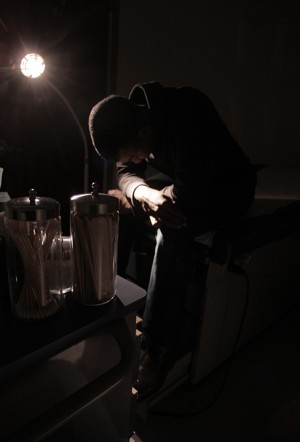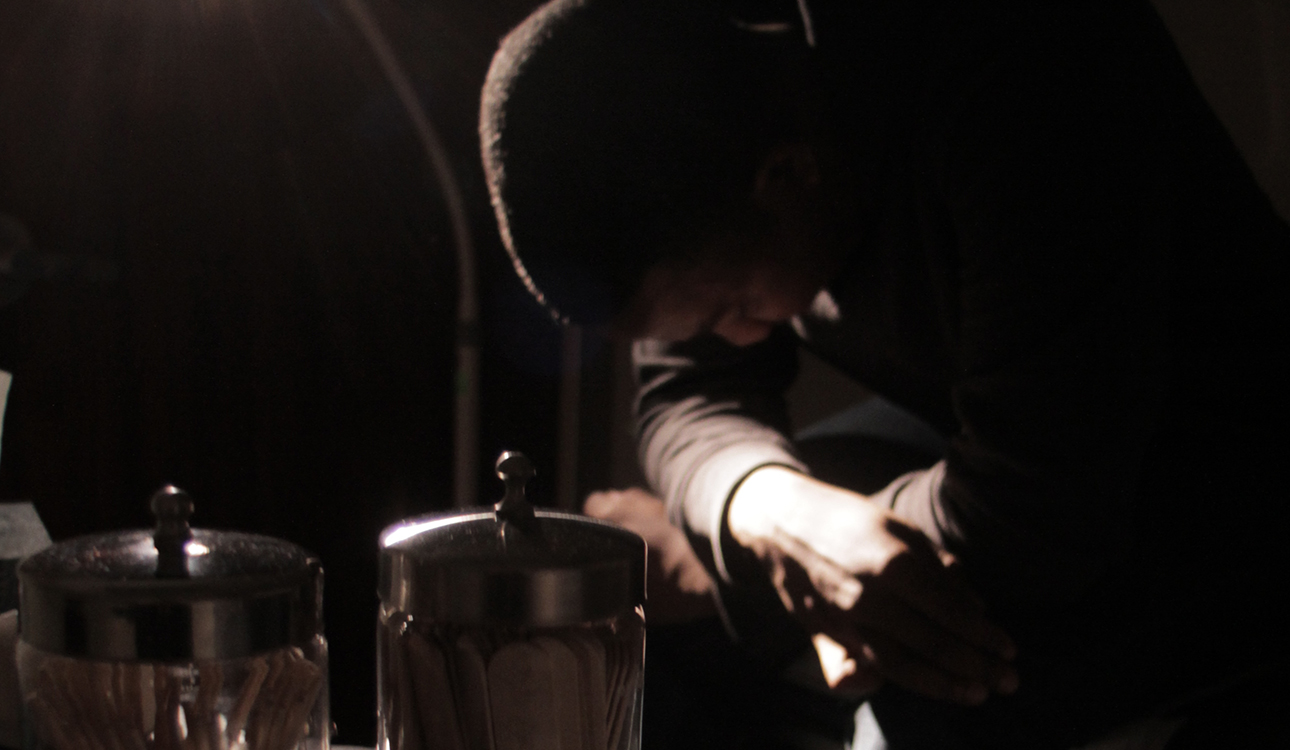
Web Editor
When someone becomes the victim of a sexual assault, they are faced with some hard choices that are not easy to make. However, those decisions can have long-lasting impact. One of the major choices they have to make it whether to go to the hospital after the sexual assault.
When a victim of sexual assault goes to the hospital within 72-96 hours after the sexual assault has occurred, the victim has the option of consenting to the collection of a rape kit by a Sexual Assault Nurse Examiner (SANE).
Anne Galloway, a SANE practicing in New York, participated in the recording of “A Body of Evidence: Using the NYS Sexual Offense Evidence Collection Kit” video produced by the New York State Division of Criminal Justice Services.
In the video, Galloway said collecting a rape kit is “a process that is inherently invasive and, unfortunately, often degrading for the patient, yet vitally important for the successful investigation and prosecution of sexual assault cases.”
According to the Rape, Abuse & Incest National Network, a rape kit, used to collect evidence during the forensic medical exam, “may also be referred to as a Sexual Assault Evidence Collection kit, a Sexual Assault Forensic Evidence kit, a Sexual Offense Evidence Collection kit, or a Physical Evidence Recovery Kit.”
Also taking part in the recording of the video, “A Body of Evidence,” was actress Marisk Hargitay, who plays Detective Olivia Benson in the NBC drama “Law and Order: Special Victims Unit.” Hargitay works off screen with the Joyful Heart Foundation she created in 2004 whose mission is to educate and empower victims of abuse.
Hargitay is a trained rape crisis counselor. She has also testified before Congress to urge lawmakers to address the backlog of untested rape kits through the country, and she launched the web site www.endthebacklog.org to address the issue. In Texas alone, the existing backlog numbers are at least 15,900 with estimates as high as 20,000 backlogged rape kits, as reported by The New York Times.
“The severity of the trauma and complexity of the healing process truly hit home when I started receiving emails and letters from survivors sharing their stories,” Hargitay said in the video. “That these individuals would reveal something so intensely personal – often for the very first time – to someone they knew only as a fictional character on television, demonstrated to me how desperate they were to be heard, how desperate they were to be believed, understood, comforted and healed.”
Hargitay goes on in the video to address medical first responders and their role in the healing process for victims of sexual assault.
“Your primary obligation is to you patient,” Hargitay said in the video. “But in a sexual assault case, that patient – as callous as this may seem – is also the crime scene: a living, breathing, feeling, traumatized body of evidence in desperate need of both your professional skills and your deepest human compassion – the compassion we know you already have in abundance.”
Amy Perkins serves as the executive director for the Advocacy Center for Crime Victims and Children in Waco. The Advocacy Center serves the entire Heart of Texas area, covering McLennan, Hill, Falls, Bosque, Limestone and Freestone counties.
“We serve male and female victims here at the Advocacy Center,” Perkins said. “About 10 percent of victims that come through our door are male. For example, over the past five years, we had 488 males that were assisted. The trend is actually growing as people recognize more and more that little boys, young men and adult men can be sexually assaulted.”
Education and prominent national stories are helping increase the visibility of the issue of male victims of sexual assault.
“We see our numbers increasing just as the stigma is not so much as it used to be,” Perkins said. “It used to be a very taboo subject. Sexual assault in general, much less sexual assault of a male victim.”
The Advocacy Center in Waco provides the SANE nurses that perform the forensic medical exams for victims.
“If it’s within 96 hours and someone is sexually assaulted and they respond to or show up at the hospital or call law enforcement and law enforcement accompanies them to the hospital, we have our SANE nurses that go and collect the evidence,” Perkins said. “We have what we call hotline advocates who are specially trained volunteers who are trained to go into the room with them, hold their hand, explain to them what’s happening and advocate on their behalf.”
The process of becoming a SANE is an extensive and time-consuming process.
“Our sexual assault nurse examiners receive hours and hours of training,” Perkins said. “They have to be RN’s and have to have two years of experience and then go to two weeks of training to become a SANE nurse. And then they have to observe usually for about a year before they can begin to provide services as a SANE. Any victim of sexual assault, if it is acute, which is within about 96 hours, then they respond to either Providence or Hillcrest here in town.”
SANE nurses are qualified to work with both male and female victims.
When a SANE responds to a sexual assault case, “they will talk to the victim, get a history, find out what going on, make the patient feel a little more comfortable,” Perkins said. “They will do the evidence collection and just make sure that they are OK. If they need further treatment, they will refer them to hospital staff to help them out if they need to be admitted, if they need X-rays, things of that nature.”
The contents of the rape kit can vary from state to state, according to the website www.endthebacklog.org, most kits include the following items:
- Detailed instructions for the examiner
- Forms for documenting the procedure and evidence gathered
- Tubes and containers for blood and urine samples
- Paper bags for collecting clothing and other physical evidence
- Swabs for biological evidence collection
- A large sheet of paper on which the victim undresses to collect hairs and fibers
- Dental floss and wooden sticks for fingernail scrapings
- Glass slides
- Sterile water and saline
- Envelopes, boxes and labels for each of the various stages of the exam
During the sexual assault, the victim has no control. It is important that during the recovery and healing process, that the victim is empowered and in control of the entire process, according to the Indiana Coalition Against Sexual Assault.
The Boston Center stresses, “The survivor is in control of the entire exam. Before each step of the Kit, the medical provider should explain the step and ask the survivor if they want to continue. Nothing will be done that the survivor does not agree to.”
When a SANE begins the examination, they begin by collecting a thorough medical history.
Then they have the victim undress while stand on a large sheet of paper to collect the clothes plus any hair or fiber evidence that may fall from the clothes or body to be tested.
Then the head-to-toe physical exam begins. During this portion of the exam, any injuries from the attack are documented and evidence is collected.
The SANE will collect biological evidence, such as blood, saliva, urine, semen, skin cells and hair. This is done “by taking swabs of the victim’s skin, genitalia, anus and mouth, scraping under the victim’s fingernails and combing through the victim’s hair,” according to www.endthebacklog.org web site.
The forensic medical exam is an intensive exam that can take from four to six hours, but a victim can decline any or all parts of the examination at any point during the examination process.
It is recommended that even if a victim is unsure if they want to go to the police and press charges that they go to the hospital and have a rape kit collected. That allows them time before needing to make a decision on whether to press charges. It also allows critical evidence to be collected before it is lost.
Under the Violence Against Women and Department of Justice Reauthorization Act of 2005, states are not allowed to “require a victim of sexual assault to participate in the criminal justice system or cooperate with law enforcement in order to be provided with a forensic medical exam, reimbursement for charges incurred on account of such an exam, or both.”
Not only does the Advocacy Center provide the SANE nurses to collect the forensic medical exam, but they are also involved in providing long-term support for victims of sexual assault.
The Advocacy Center works with victims of all crimes. However, a vast majority of those it serves are victims of sexual assault. It provides individual therapy for male and female victims of all ages of sexual assault whether the sexual assault was recent or if it happened when they were a child. They also provide sexual assault survivor support groups for women, men, boys, girls and teens, Perkins said.
Anyone interested in joining a support group or coming in for services can contact the Advocacy Center at 254-752-9330.
“If there is a specific need that a victim or survivors are having, we will be glad to connect them with other survivors or a support group,” Perkins said.
The Advocacy Center also engages in community education.
“We have an intervention/education program and it’s their job to go out and talk to schools and community groups, civic organizations and things of that nature,” Perkins said. “They talk about bullying. About what’s appropriate to change the cycle of violence so when little boys grow up they don’t think that it’s OK to victimize someone.”
EDITOR’S NOTE: This story has been edited to move the information about resources available through the national organization MaleSurvivor to part 3 of this series.






